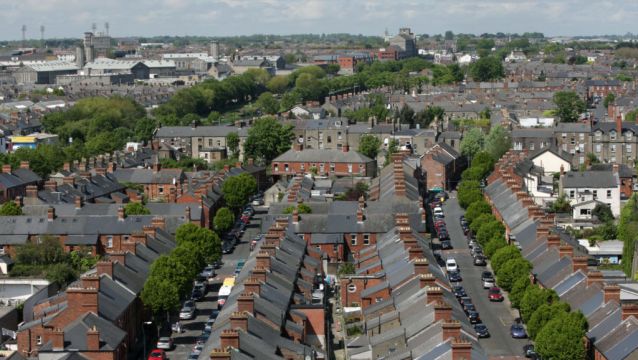With the Irish property market becoming an increasingly difficult place to navigate, buying a house now seems like an impossible reality for many.
If you are looking to get on the property ladder, there are a lot of things to consider and boxes to tick off before getting a sale agreed.
Here is everything you need to know...
Saving for a deposit
Saving for a deposit is the first essential step you need to take when looking to buy a house.
The amount of money you can borrow from a lender for a mortgage depends on the amount of money you have saved for a deposit.
For first-time buyers, a 90 per cent limit, in most cases, will apply to the mortgage you can get. Therefore, you will need at least a 10 per cent deposit saved up before you can apply to a lender.
Generally, the amount you can borrow from a mortgage lender is 3.5 times your income. So even if you have a 10 per cent deposit, you may need to save more depending on the price range of the property you are looking at.

If you are not a first time buyer, you can generally borrow up to 80 per cent of the property price, meaning you will need at least a 20 per cent deposit.
Using a financial adviser or a spending calculator can be helpful to work out where your money is going and where you can cut back to save for your deposit.
Many lenders advise those looking to save a deposit to open up a savings account. Saving regularly in the one account can show lenders you have a strong savings record, which will really help when making mortgage applications.
Are there any other costs to consider?
On top of the deposit, there are a number of other costs associated with buying a house that you need to keep in mind.
Having money to pay for stamp duty, which is usually between one and two per cent of the house price is essential.
Other costs such as legal fees, survey costs, engineer reports also have to be budgeted for when buying a house.
Then, of course, if the house you buy is in need of repairs, decoration, or furniture, you will need to consider those costs too.
If you are buying a house that could need bathroom repairs, or if you are a first time buyer with no furniture, having extra cash saved before getting your sale agreed can save a lot of stress.
Are there any supports available?
There are some supports available for those looking to buy a house, such as the Help-to-Buy (HTB) incentive.
The HTB scheme is for first-time buyers of newly built homes looking for help to fund their mortgage deposit. The scheme also caters for once off self build homes too. The scheme works by giving buyers an income tax and DIRT refund.
However, there are conditions attached to the supports. To avail of the scheme, the property must cost €500,000 or less and buyers have to be tax compliant for the pervious four years.
Buyers must also take out a mortgage of at least 70 per cent and live in the property they are buying for five years from the date that it is habitable after purchase.
As well as the HTB scheme there is now also the Enhanced Help to Buy Scheme.
Under this enhanced relief, buyers who sign a contract for a new house or draw down on a self-build mortgage between 23rd July 2020 and 31st December 2022 are eligible for increased supports.
You can check out more information about these suppers here.
Finding a mortgage lender
There are a number of mortgage lenders to choose from, so it's important to do your research to find the one that suits you.
You can start to talk to lenders before you have your deposit saved, or you can wait until after. You can do this directly or, alternatively, you can use a broker.

When looking for a lender, the most important thing to consider is the interest rate you will get. Lenders offer different interest rates that can be fixed or variable.
A fixed rate mortgage means the interest you pay, and your monthly repayments are predetermined for an agreed term with your mortgage lender.
On the other hand, a variable interest rate means that the amount of interest you pay can go up or down depending on different factors.
The type of interest rate, as well as the term of the mortgage, will both effect how much money you pay in the long run. Make sure to shop around to get the best mortgage that suits you.
So, what about after mortgage approval?
After getting your mortgage approved, there are still a few things you need to do before getting a sale agreed.
You will need a solicitor to do the conveyancing. This is the legal side of things which involves transferring the property from the seller to you.
This is really important as the solicitor will also ensure the sale of the property to you is legal.
As well as a solicitor, you will also need mortgage protection which is insurance that will cover your mortgage if you die within the policy term. Morbid, but essential.
Some lenders will not approve your mortgage without insurance. You can usually get insurance with your lender, or you can get it from a different provider.
Finally, house hunting!
Once you have everything else in place, it's a good time to start searching the market.
The Irish property market is a difficult place to navigate at the moment, with a shortage of properties and increasing prices. So finding the right property for you make take some time.
As mentioned before, it can be a good idea to pay for a surveyor to check out the property to highlight any problems you may not have been aware of. This can effect the offer you want to make on a property.
If you make an offer which is accepted, your solicitor will deal with all the relevant legal work that needs to be done to finalise the sale. This can take a couple of weeks.
Your lender will also want a property valuation carried out before approving the loan for the property.
Once you, your lender and the seller are happy everything is in order, you are good to go.







